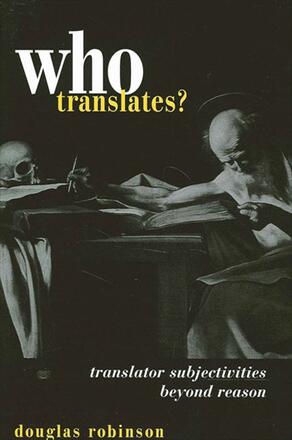
Who Translates?
Translator Subjectivities Beyond Reason
Alternative formats available from:
Argues for a postrationalist conception of translation based not on the translator's rational control of words and meanings but on a flowing through the translator of voices and textualities.
Description
2001 CHOICE Outstanding Academic Title
Translators have long claimed that their job is to "step aside and let the source author speak through them." In Who Translates? Douglas Robinson uses this adage to set up a series of "postrationalist" perspectives on translation, all based on the recognition that translation has always been thought of in terms of the translator's surrender to forces beyond his or her rational control. Exploring this theme, Robinson examines Plato's Ion, Philo Judaeus and Augustine on the Septuagint, Paul on inspired interpreters, Joseph Smith on the Book of Mormon, and Schleiermacher, Marx, and Heidegger on translation. He traces the imaginative and historical linkages between twentieth-century conceptions of ideology and ancient conceptions of spirit-channeling, and the performative inversion of power relations by which the "channel" (or translator) comes to wield the source author as his or her tool. And he argues throughout for a postrationalist conception of translation based not on the translator's rational control of words and meanings but rather on a flowing through the translator of voices and textualities.
Douglas Robinson is Professor of English at the University of Mississippi and has written numerous books on translation and culture, including The Translator's Turn, Translation and Taboo, and Becoming a Translator: An Accelerated Course.
Reviews
"…no writer on translation theory is as engaging as Robinson. Balancing humor and erudition, this work joins others in shaking the tree of conventional thought; and the reader joins Robinson in laughing at the notion that translation is an act of dispassionate reason or divine inspiration. In place of truths retrieved as naked as the unclothed emperor, he offers the reader poetically and ideologically colored cloth from Plato and Freud and the Old Testament…Who Translates? is likely to become the novice translator's guide to the orchestration of words." — CHOICE
"Robinson's study of translation is boundless. From one work to the next he picks up on a barely mentioned tangent and carries it to new horizons with erudition and wit. Inasmuch as his scholarship proceeds to rechannel the mainstream, it is fitting that he now takes up translation as spirit-channeling. Readers will find much to challenge their preconceptions in this book." — Marilyn Gaddis Rose, editor of Translation Spectrum: Essays in Theory and Practice
"What's most appealing about the book is its great culture—that is, its embrace of many disciplines, modes of thought, and disparate national/linguistic as well as philosophical and ideological traditions—and its extreme openness, its willingness to explore translation and subjectivity from perspectives that most academic writers and specialists would refuse to consider." — Jeff Humphries, author of Reading Emptiness: Buddhism and Literature